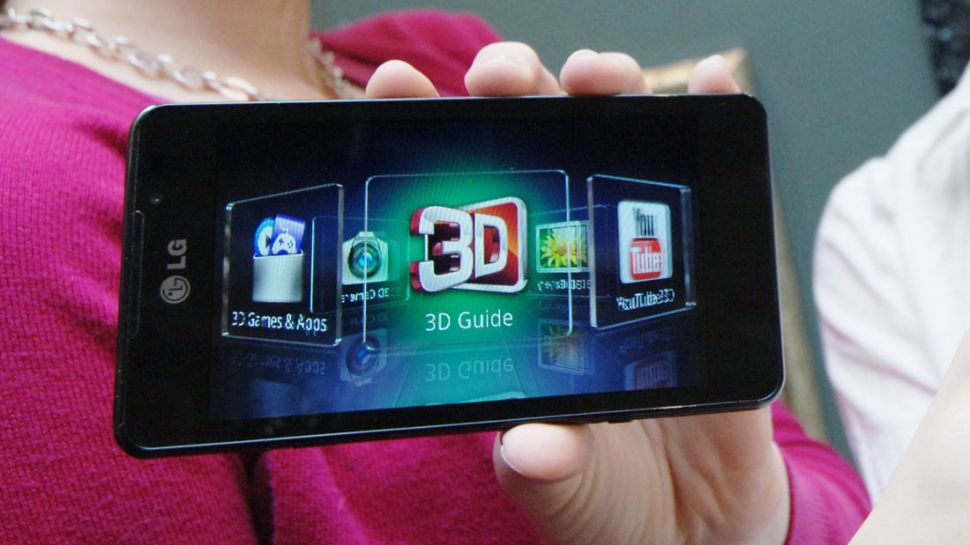The early adopter is now the stupidest person in tech
Opinion: The gamble of being first

Sign up for breaking news, reviews, opinion, top tech deals, and more.
You are now subscribed
Your newsletter sign-up was successful
How's that 3D TV going? What's that? You only own two 3D films? The glasses got stood on? The manufacturer's exclusive content hub is generating nothing but 2D server errors? You forgot it even was 3D? That's the price the modern tech fan pays for buying things first nowadays – they're also the first to be left owning something unsupported and obsolete.
A few years ago, being an early adopter was a simple proposition: you paid the full RRP or maybe even a bit more to have something on day one, then had a lifetime with a usable product. You got it first. You were the best. The everyday man followed your lead and everyone owned things until they wore out.
But now, buying something new is like taking a weird gamble on the product stock market. Will the maker still be in business this time next year? Will you have to pay a monthly fee to make it work next year? Will the entire product category head for the bin? Is what you're buying today, in the heat of the post-announcement pre-ordering process, going to be the next Google Glass?
This last few weeks alone we've seen the end of 3D as a home TV selling point, as the 2017 models announced by the big makers at CES left out all mention of the format that was once, about four years ago, supposed to be the next big thing in home cinema, plus Google is now discounting its Daydream VR headset presumably due to mounting buyer disinterest in VR already.
Likewise curved displays. They were cutting edge for a year or so, but now they're just the weird bent TVs that a few people who spent a lot of money at the wrong time are now lumbered with for a generation.
Stop making nonsense!
The problem is the rate at which new ideas and technologies are flung out there by the manufacturing giants, to see if anything sticks. A lot of things don't stick and are just ignored, shortly after they were heralded as empowering magical products. Things made by LG, mostly, which seems to have a unique curse when it comes to pushing flop innovations on people.

Take the LG Optimus 3D, one of the clunkiest smartphones this side of a Fisher Price phone. If you'd bought one of those on day one, you'd have been stuck with a novelty lump for 24 months, with the final 22 of those months spent regretting buying a product with a gimmick that was doomed to fail.
Sign up for breaking news, reviews, opinion, top tech deals, and more.
LG did it again last year with the modular phone concept -- pushed by Google and then abandoned before it even made any click-together devices -- and the rumours regarding this year's update of LG's flagship phone suggest that the entire modular concept has been abandoned. Poor people who bought one less than a year ago hoping to see a well supported ecosystem of things to play with.
They got a year.
History repeating
It seems pretty easy, in hindsight, to spot these micro trends. Anyone over the age of 40 will remember the 3D rush of the 1980s that wilted out in a matter of months because the glasses were terrible and there was zero content, the VR of the early 1990s that was cumbersome and heavy and exploded into nothing. Plus who can forget the enforced motion control games literally no one at all liked that Xbox and PlayStation owners had to pretend, for a bit, to like?
Obviously you could now extrapolate this to the VR rush of today, but that might be a bit soon. That HTC VIVE, all £700 of it, is standing on the edge of a metaphorical landfill site, waiting to fall in and pollute the surrounding water for decades, and leave lots of early adopters with a very, very expensive few items and wires to store in a rucksack in the loft.
If you've got one, it might be best to keep it in its box, as mint condition examples of abandoned technology fetch quite good prices a decade or two after everyone stops bothering with them. Also if you've got one: sorry, but you know it's not going to stick around.
Oh, and three more words: Internet of Things. Buy anything that says that on the box and you'll be left with something that won't connect to the thing it's supposed to this time next year, as the world will, surely, start to realise that putting Wi-Fi in a kettle and a microwave isn't benefiting anyone other than the tech companies that manage to hoodwink customers into buying their needless innovations.
If the tech companies aren't careful, we'll get bored of being told everything is the best new thing and no one will buy anything until it's been proven. We'll end up doing what our parents did, nursing TVs and audio equipment through 20 or 30 years, because we know the replacements won't have the same shelf lives -- and the people that made them will say the one they released 11 months ago was rubbish, anyway, because here's a better one that's a few notes more, and you can order it today.